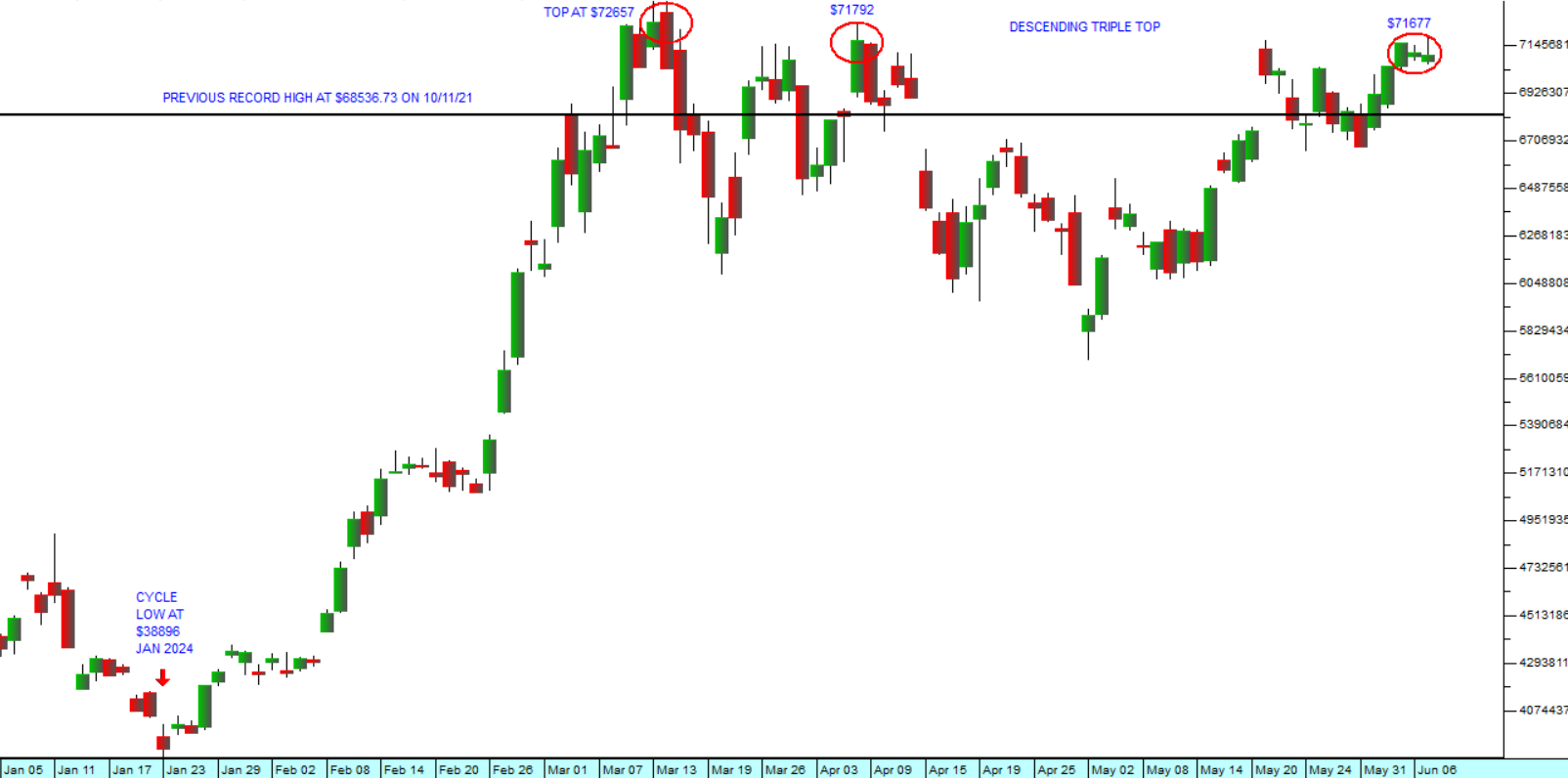Uncertainty = Risk = Volatility
We live in uncertain times. Among the sources of this uncertainty are the final outcome of the recent local elections (i.e. what the shape of our future government will take) and the prospect of the American elections on 5th November 2024. In the background are the wars in Ukraine and the Middle East which constantly threaten to escalate.
The uncertainty means greater risk and has led to markets being more volatile as investors constantly reposition themselves to either benefit from what is coming or protect themselves against it.
One of the most important axioms in the stock market is that:
Uncertainty = Risk = Volatility
The least volatile chart in the markets is a straight line – preferably (at least from an institutional perspective) one which slopes gently upwards yielding a capital gain of between 15% and 30% per annum for an extended period of time. Any departure from this ideal adds to the risk inherent in the investment and results in it being re-rated downwards.
In times of uncertainty, the smart money moves into relatively low return, low risk assets until the uncertainty has passed or at least fallen to acceptable levels. Usually, this means a move out of emerging markets like South Africa and into secure investments like US Treasury Bills.
Of course, the most secure of all investments is gold. Its security lies in the fact that it is scarce and the fact that all investors have recognised it as the most secure asset for at least 5 000 years.
Because it is the most secure of all assets, it has a zero return.
The only reason to hold gold is to protect your wealth from the weakness of the many “paper” investments – such as US T-bills, property, shares, bonds and dozens of others.
Right now, gold has broken very clearly above its long-term resistance at $2060 and is trading for around $2310. That is a considerable jump for an asset which does not pay any interest, dividends or rent. It means that a huge amount of international cash is now just sitting in gold, earning a zero return, because investors are worried about impending uncertainties.
Bitcoin shares many of gold’s characteristics – it also offers no return at all and it has no fundamental value beyond the fact that some people believe it has value. There are, however, a number of key differences.
- Cryptocurrencies are a very recently invented digital “asset”. Fifty years ago, nobody had ever heard of cryptocurrencies. Gold, on the other hand, has been around for millennia. It has literally been accepted as the ultimate store of value since the dawn of civilisation.
- Most people in the world still do not know much about cryptocurrencies or believe them to have great value.
- Bitcoin has no physical presence. You cannot hold it in your hands. It is an alignment of electrons on the cloud and inherently intangible. It requires a “leap of faith” to believe in its value.
- Almost every central bank holds large amounts of gold as a reserve asset. Only three central banks - China, the US, and Germany - have any significant holdings of cryptocurrencies.
Since Bitcoin has no fundamentals, it can only be evaluated technically. Consider the chart:

You can see that Bitcoin made a cycle low in January this year at $38896. Then it rose to a new all-time record high of $72657 on 13th March 2024. After that it made a second top on 8th April 2024 at $71792 and then just a few days ago it made a third top on 5th June 2024 at $71677. If it falls further from current levels, this could become what technicians call a descending triple top – which is arguably one of the most bearish formations in technical analysis.
It means that one or more very large holders of Bitcoin are off-loading massive quantities of the asset in a controlled manner. Whenever it goes much above the previous record high at $68536, someone very big (and hence probably very knowledgeable) is quietly getting out because they are seeing the top of this market.
Our advice remains the same: If you have them, sell them. If you don’t have them, don’t buy them.
← Back to Articles